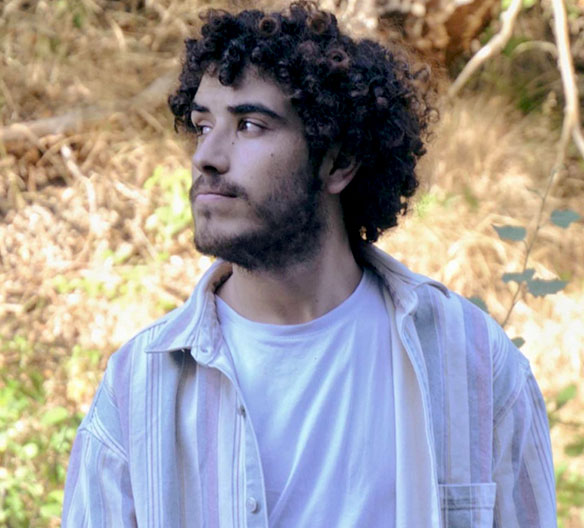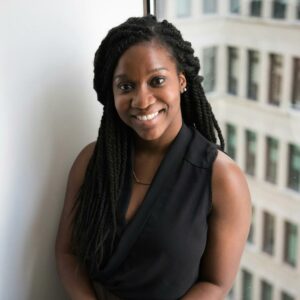What do you want to learn more about?
Our Stories Interview Series: ‘Just Another Refugee’ Book by Sahir Noah and Salam Noah

You might have seen on the blog previously that I’ve interviewed colleagues and other professionals in our community to learn more about their experiences and work.
Well, this week, I’m doing something a bit different. I recently had brothers Sahir Noah and Salam Noah reach out to me to talk about their new book. I thought it was such a fantastic idea, and it gave me a lightbulb moment that maybe these are the kinds of stories I should be sharing more.
So, welcome to this first installment of the Our Stories Interview Series. I hope to share more refugee and migrant stories in the months ahead. In doing so, I hope it offers us a chance to learn more about the clients we work with, their experiences – and their stories.
In this interview, I speak with Sahir Noah. Sahir and his brother are publishing a book of their poetry and artwork titled ‘Just Another Refugee’. Here’s a little more about the project:
“This book is a result of a long experience of leaving our country and being a refugee. Me and my brother I, with our family, had to leave our country due to war and came on a long journey to survive. We had to stay in Greece for months, and there we realized that there are many stories, feelings, and thoughts inside our minds that need to be shared. I started painting for the first time in my life, I wanted to express what’s inside me, as well as transmit the voice of refugees through art, and that’s what my brother did too when he started writing poetry attached to my paintings. Poetry was another tool to express thoughts and deliver messages. And finally, after many paintings and poems, my brother decided to turn this into a book and wrote the story of our family of how we left our country, our journey to Greece, and the life there, and collected all the poems with my paintings inside this book. Now it’s time for the world to see this, to hear those who deserve to be heard.”
Hi Sahir, and thank you so much for your time speaking with me. Perhaps to start with you could tell us a little bit about yourself.
My name is Sahir Noah. I’m 24 years old. I’m a university graduate from the language department of Lorraine University in France. I enjoy writing, music, literature, and art in general.
Your book ‘Just Another Refugee’ is an incredible collection of art and poetry by you and your brother. Could you share a bit more about it and why you decided to create it?
The role of art in my and my brother’s life has always been important, even when we were in Iraq back home. My brothers often played music at family gatherings, but the biggest impact art had on our life was during our stay in the Ritsona refugee camp in Greece.
At first, life was super difficult there, but then many volunteers and NGOs came to help. Some volunteers brought us musical instruments, books, notebooks, and painting supplies. This helped us more than anything there – yes, food kept us alive, but art wasn’t any less important. Art was the food to our souls.
One of my brothers knew how to paint when he was in Iraq, but he didn’t have enough time to do so. He got the opportunity to paint again and started painting on the walls of the camp as well as on the canvas that some volunteers brought for him. Later on, two of my other brothers started painting for the first time in their life, one on canvas and the other started painting on tree leaves.
We gathered around a table we made inside the camp and played music daily. I learned some guitar and was playing with them too. The amount of happiness we were getting through music at that time was amazing. The way music was distracting us from overthinking and helping us go through our daily life difficulties was just beautiful.
I started writing poetry in a refugee camp in a small notebook I got from a volunteer. At first, I wrote only about what I felt and kept the poems to myself, but after I arrived in France and started a new life, I started writing poems alongside my brother’s paintings to talk about my experience and the experience of millions of refugees – people who were living in war, children and women.
I started writing a poem each time my brother painted a new painting, and we shared it on social media.
After years of writing, I decided to turn this into a book. The book contains my poems, my brother’s paintings, and the story of our family of what we lived and our journey from Iraq to Turkey, from Turkey to Greece, our life in Greece, and how we came to France.
It’s a really powerful and important story highlighting refugees’ challenges like yourself. What would you like mental health clinicians to know about refugees going through these experiences? How can they help you better?
I’d like them to understand that almost every refugee who has lived in war, passed through a very difficult journey, and came to a safer country is in need of special treatment. Also, to know about the role of cultural differences and to try to understand that – yes, they are different – but not inferior to others.
The best thing is to listen enough to all of their story; what they have been through, their life back in their home, and their childhood. To treat everyone as an individual and not treat them all the same way.
You’ve touched on this a little bit already, but what is something you think people frequently misunderstand about being a refugee?
As a refugee myself, I’ll speak based on what I’ve experienced and seen. Until this day, so many people believe a refugee leaves their country because they want to or because they just want a more comfortable life.
Yes – people are looking for a better life, but most of the people are running away from a war, from discrimination, and from a lack of safety. They basically just want to survive.
Again, the idea of putting everyone in the same basket is very wrong. A refugee who does something bad doesn’t represent other refugees. We are all different, and almost every young refugee person was educated in their country and is trying to continue their studies and have a good future too.
And lastly, if people want to learn more about you and your work, where can they find you or how can they contact you?
All the paintings by my brother Salam, and the paintings of my other brothers, can be found on their website: brotherlyart.net
For people who are interested in reading our book, you can contact me directly either via Gmail: sahirnoh@gmail.com or via Instagram: @Sahir_Noah
‘Just Another Refugee’ is a full-color hardback book including 26 photos of Salam Noah’s paintings and 26 of Sahir Noah’s poems and their family’s story. If you are interested in purchasing a copy, please reach out to Sahir directly via his contact details mentioned above.
If you know a migrant or refugee who might be interested in sharing their story as part of the Our Stories interview series, please get in touch with me today – I’d love to share their voice.
Drop me a line via my contact page or email hello@immigrationevaltraining.com.

I’m Cecilia Racine, and I teach therapists how to help immigrants through my online courses. As a bilingual immigrant myself, I know the unique perspective that these clients are experiencing. I’ve conducted over 500 evaluations and work with dozens of lawyers in various states. Immigrants are my passion, I believe they add to the fabric of our country.
related articles
Building Rapport with Clients in Immigration Cases
Establishing a strong therapeutic alliance is critical and challenging for mental health clinicians working with…
Invisible Wounds: The Importance of Brain Injury Awareness in Psychological Evaluations for Immigration Cases
March marks National Brain Injury Awareness Month, an essential time for mental health clinicians to…
Budget-Friendly Tips for Professional-Looking Photos
As therapists dedicated to helping individuals through crucial immigration processes, presenting a professional image is…
Join the Free
Immigration evaluation
therapists facebook group
Are you a therapist that conducts immigration evaluations?



